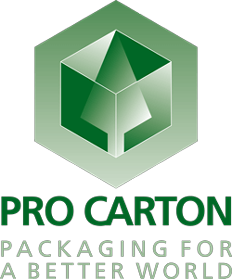Sustainable Products Initiative
Fibre-based packaging: a frontrunner among sustainable products
Fibre Packaging Europe welcomes the European Commission’s Sustainable Products Initiative (SPI). We acknowledge the importance of ensuring that sustainable products support Europe’s transition to a climate neutral, resource efficient and circular economy. Packaging sourced from renewable wood, generally referred to as fibre-based packaging, actively contributes to the green transition by phasing out fossil-based materials and their associated emissions. This contribution has the potential to be continually increased by further innovation in fibre packaging products. As the Commission defines its SPI legislative framework, it is important to recognise the most sustainable frontrunners and to acknowledge the crucial role of fibre-based packaging in the circular economy. Fibre Packaging Europe welcomes the establishment of overarching sustainability principles aimed at minimising the negative environmental and social impacts of products and their associated manufacturing processes. These principles must be applicable to varied product categories, and therefore we suggest focusing on measures which:
- Improve resource efficiency by introducing renewability as a sustainability principle
- Refrain from applying mandatory recycled content requirements on well-functioning recycling markets
- Promote responsible sourcing of raw materials
- Apply product-specific approaches to avoid overlaps and duplicating policy
- Ensure that fibre-based products can continue to contribute to European resilience
- Secure a level playing field with imported products
Fibre Packaging Europe looks forward to working with policymakers to ensure that stakeholder concerns and scientific evidence are taken into consideration before the legislative proposal is released. We remain available to provide additional information, expertise and data, and would appreciate the opportunity to continue the dialogue with policymakers on this crucial topic.
About Fibre Packaging Europe
Fibre Packaging Europe is an informal coalition of seven trade associations representing industries involved in forestry, pulp, paper, board and carton production and recycling from across Europe. Our joint mission is to provide renewable, circular and sustainable fibre-based packaging solutions to European citizens to achieve the European Green Deal objectives. Together, we represent around 1500 companies and over 2200 manufacturing plants, we employ more than 365.000 people across Europe and our annual turnover is around EUR 120 billion.




